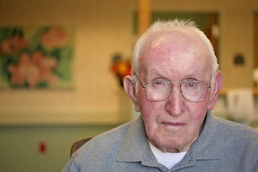Care Bill reforms risk being fundamentally undermined by inadequate funding, warns age charity

The third edition of the ‘Care in Crisis’ report from older people’s charity Age UK has revealed a shortfall in spending on social care of £769m since 2010.
The charity is calling on the Government to invest in the social care system at the next Budget to prevent the Care Bill, which is entering its last stages, from being undermined by a lack of adequate funding to ensure its reforms can be realised.
Ageing population For social care services for older people, spending has remained mostly stagnant since 2005, despite the number of people aged 85 and over has risen by 30 per cent from 986,000 to 1,280,000 between 2005 and 2014.
The report suggests this is the reason 87 per cent of local authorities are only helping older people whose needs are assessed as ‘substantial’ or above, leaving those with ‘moderate’ or ‘low’ needs without any support.
This has led to a drop in the amount of people over the age of 65 receiving help by 27 per cent between 2005/06 to 2012/13.
Caroline Abrahams, charity director at Age UK, said: “The figures we have uncovered in this report are catastrophic. Older people who need help and who are now not getting it are being placed at significant risk and families who care for loved ones are experiencing intolerable strain.
“If older people do not receive the care they need and as a consequence end up in A&E units and hospital wards, we have simply shifted people around the system at great financial cost and created distress and disruption for older people in the process. This makes absolutely no moral or economic sense.”
Evidence and analysis in the report has found the amount spent on social care services has dropped by £1.2bn since 2010, and despite £438 transferred form NHS budget to local authorities for social care spending, there is still a drop in spending of £769m since 2010.
Front-line care
Responding to the report, the Registered Nursing Home Association (RNHA) has said the impact of the cuts can be seen most by those delivering front-line care.
Chief executive officer Frank Ursell: “Those of us who provide 24-hour care to some of Britain’s frailest older citizens have witnessed at first-hand how, despite the government’s hype to the contrary, frontline services have seen budgets cut.
“The reality, as the Age UK has yet again confirmed, is that public expenditure on care for the elderly has been dropping quite markedly while the number of individuals in need of care has been growing. In that respect, it’s what you might call a ‘perfect storm’ in which the biggest losers are those least able to stand up to the government.”
The RNHA has found the majority of publically funded nursing homes have either experienced no increase in fee levels or a below inflation increase for the next twelve months.
The RNHA said extra pressure is being put on homes to improve their quality by the CQC despite the lack of financial support.
Mr Ursell added: “We in the RNHA have a simple message for the government. Please put your money where your mouth is because, so far, the money isn’t flowing where you said it would. Age UK was right to call its report Crisis in Care 2014 – there certainly is a crisis and it’s mainly of the government’s making.”
'Unacceptable' situation
Mr Padgham, chair of the Independent Care Group (York and North Yorkshire), has called the situation ‘unacceptable’.
He said: “Thousands of our most vulnerable people are being denied the vital care that they need to live with independence and dignity and in 2014 in a civilised country, that is unacceptable.
“The social care sector has argued for more than a decade that care for older and vulnerable people is chronically under-funded but nothing has been done to address the situation.
“Here we have the hard evidence of people going without the care they have a basic human right to have."
Latest News Analysis
 04-Sep-19
Extra £1.5 billion announced for social care in Chancellor's Spending Review
04-Sep-19
Extra £1.5 billion announced for social care in Chancellor's Spending Review
 02-Jul-19
Department of Health forced to rethink care homes' nursing rates after legal challenge
02-Jul-19
Department of Health forced to rethink care homes' nursing rates after legal challenge
 18-Jun-19
Overnight care workers forced to sleep in offices and told 'bring your own bedding'
18-Jun-19
Overnight care workers forced to sleep in offices and told 'bring your own bedding'
 14-Jun-19
Back in the closet: Third of care home staff have had no LGBT+ awareness training
14-Jun-19
Back in the closet: Third of care home staff have had no LGBT+ awareness training
 11-Jun-19
PM candidates on social care: Rory Stewart calls fixing care an 'unfinished revolution'
11-Jun-19
PM candidates on social care: Rory Stewart calls fixing care an 'unfinished revolution'